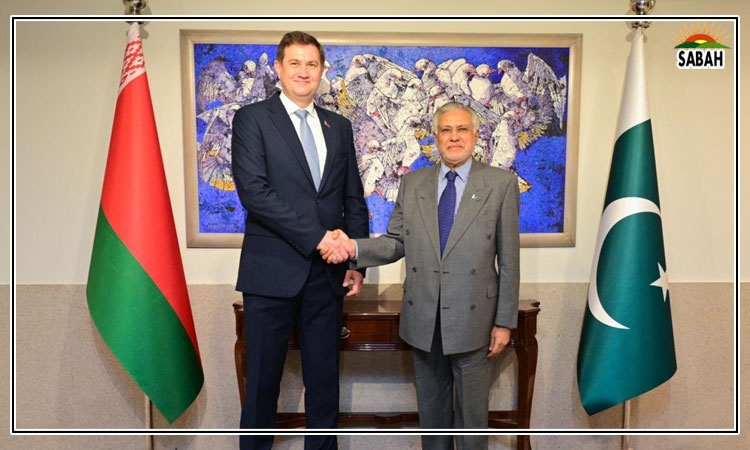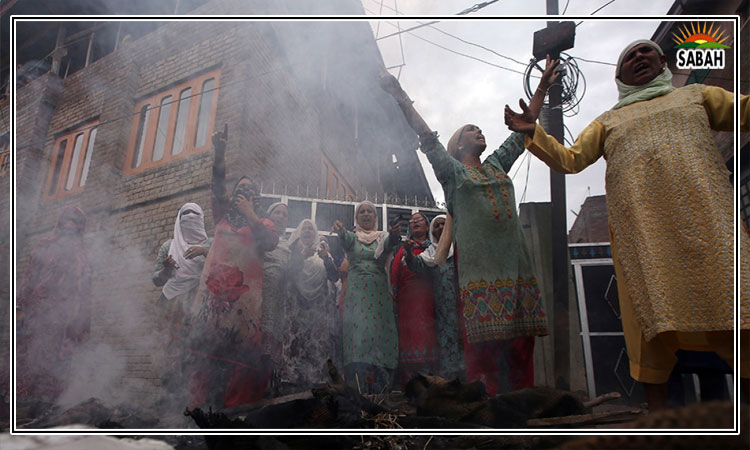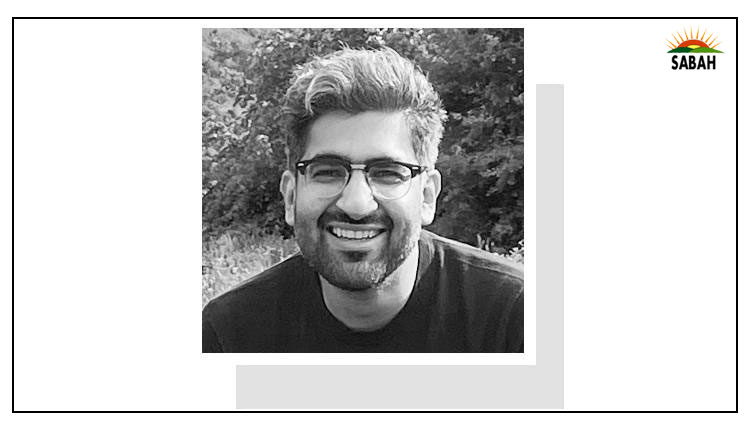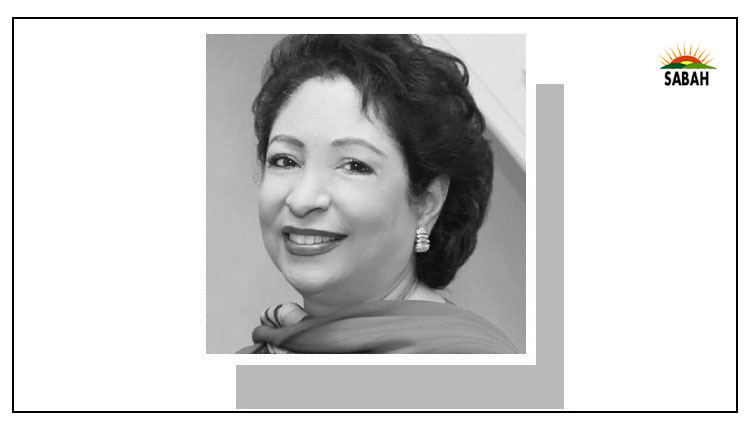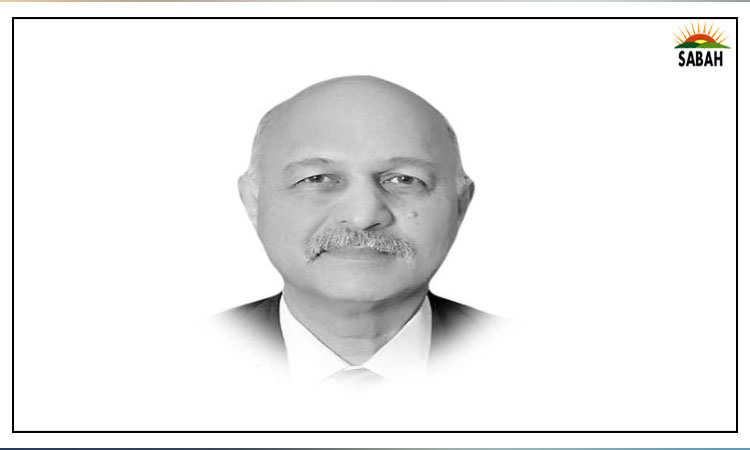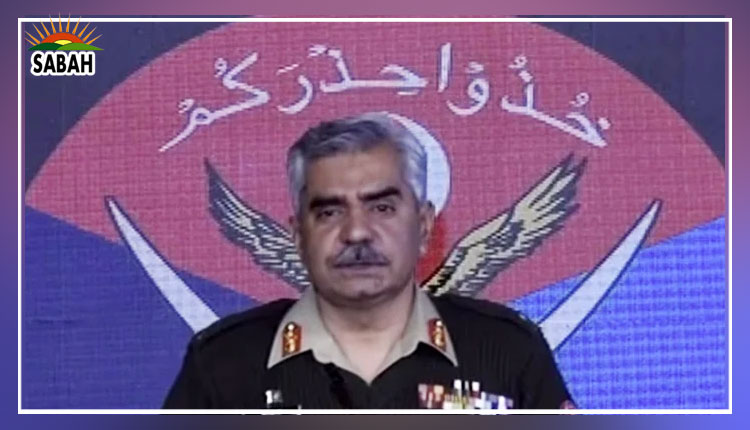DG ISPR Major General Babar Iftikhar terms rumors about a deal with Nawaz Sharif as absolutely baseless speculation
RAWALPINDI, Jan 05 (SABAH): Director General of Inter-Services Public Relations (ISPR) Major General Babar Iftikhar on Wednesday, termed the rumors about a deal with Pakistan Muslim League-Nawaz’s (PML-N) Quaid and former prime minister Mian Muhammad Nawaz Sharif as absolutely baseless speculation, adding that if anyone is talking about a deal, please ask them who is doing it and what is the evidence of such a deal.
As the year 2021 came to a close, Major General Babar Iftikhar gave an overview of the year 2021 at a press conference.
The journalist asked the question that there are speculations about Nawaz Sharif’s return to Pakistan and in government though deal are circulating and these things are not coming from opposition circles but also from the government circles, whether you will tell reality and whether whatever has been happening in Pakistan in past is being repeated? Replying the question DG ISPR Major General Babar Iftikhar said “I will say only in this matter that all these are speculations and I will say them baseless speculations if anyone is talking like this and talking about deal then I will request you to ask question from them that who is striking deal and what it is evidence that anyone is striking deal, nothing such is present and if anyone talks about it then I will request you to seek details of this from them, in my understanding I am clear on that, this is all absolutely baseless speculation and less it is debated and discussed it will be better in interest of our country”.
Replying another question, Major General Babar Iftikhar said that there is problem in civil-military relations in the country, I say this time and again that the armed forces of Pakistan are subservient institution of the government of Pakistan and work according to their orders and that is it and there is nothing more to it and there is no need to further speculate the matter. He said on TV programs in the evening, establishment, establishment and establishment do this and that it will be my request to media to keep away establishment from this debate as there are many important issues in Pakistan, there is education, health, infrastructure development, population growth and agriculture and there is need to hold discussion on these things, adding that the more you will bring this in the debate the more you will be brining this into, we have said time and again to keep away from this debate and keep the institution outside and not hold debate on it.
Major General Babar Iftikhar replying a question said within the limited resources that we have, we have maintained our defense capability, carried out its capacity enhancement and improved it and we are ready to deal any kind of internal and external threats and will become ready in future also.
Major General Babar Iftikhar said that fencing of the Pak-Afghan border would continue as planned, adding that the blood of martyred soldiers was involved in erecting the fence.
During the wide-ranging media talk on a myriad of issues relating to security and regional developments, the army spokesperson also discussed issues related to the Pak-Afghan border, including its fencing.
According to the DG ISPR, border fencing was being done in an effort to protect the people on both sides as well as to regulate trade. “The fence on the Pak-Afghan border is needed to regulate security, border crossing and trade. The purpose of this is not to divide the people, but to protect them.”
He also said that the security situation along the Western border was “challenging” during 2021. “The western border management, specifically the Pak-Afghan border … there are some specific local, operational and strategic dynamics and these are [being] addressed at the relevant level.”
The DG ISPR said that the Pak-Afghan border fencing was 94 per cent complete, adding: “We are totally focused, and under the western border management regime, the work that is underway will be completed in some time.”
He said that the border management system would be made more effective with the passage of time. “The blood of our martyrs was spilled in erecting this fence. It is a fence of peace. It will be completed and will remain [in place].”
He also said that 67 new wings of Frontier Corps Balochistan and Khyber Pakhtunkhwa had been established in 2021 to further strengthen border security. He added that a process to establish six more wings had been initiated.
When asked whether the government had protested with Afghanistan about recent incidents of damage to the border fence, the DG ISPR reiterated that western border management had “local and strategic dynamics”.
The DG ISPR deemed the recent uprooting of the fence by Taliban fighters as “one or two localised problems”, which he said was being discussed by the governments of both the countries.
“We have very good relations. We understand each other and keep talking about different issues that keep surfacing. There is no problem, fencing is underway and will continue.”
The DG ISPR also touched on recent talks with the banned Tehreek-i-Taliban Pakistan (TTP) during the press briefing, stating that they were “on hold” but operations were “ongoing”.
“The ceasefire [with the TTP] ended on Dec 9. It [the ceasefire] was a confidence-building measure taken ahead of talks with these violent non-state actors on the request of the current Afghan government.
“There was a requirement for the interim Afghan government that the TTP should not be using their soil against us so they said they would bring them to the table and make them accept what Pakistan wants. Obviously, those external conditions were yet to be settled.
“The TTP is not a monolith. They have internal differences. There were some problems … some conditions that were non-negotiable from our side so there is no ceasefire [right now]. We are continuing with operations and will continue till we get rid of this menace. That’s how it goes.”
Major General Babar Iftikhar also spoke of a “campaign” against national institutions, which he said was hatched to create a “gulf” between the masses and the institutions and to “damage people’s trust”.
“We are aware of these efforts and their various linkages,” he said. “[Those] who spew half-truths, fake news and false propaganda to target institutions and damage the country have failed and will always fail.”
At one point, a reporter also asked the army spokesperson about whether Chief of Army Staff General Qamar Javed Bajwa would be granted another extension in 2022.
However, the DG ISPR firmly stated that it would be best not to indulge in such “baseless accusations”.
Major General Babar Iftikhar began the press conference by recalling Indian forces’ atrocities in occupied Kashmir as well as “propaganda” campaigns by their media.
He said that under the ceasefire agreement signed with India in February 2020, the situation along the Line of Control (LoC) remained largely peaceful, adding that the “biggest dividend” was that it improved the lives of locals living in the area.
“At the same time, the blame from the Indian military leadership and false propaganda points to a specific agenda to remove global attention from Indian atrocities in occupied Kashmir.”
The DG ISPR accused India of engendering regional security through its defence procurement, adding that it would trigger an “arms race” in the region and have a negative impact on peace.
He also rejected Indian allegations against Pakistan regarding infiltration. “They have committed false propaganda about infiltration along the LoC,” he said.
“They recently staged a fake encounter in Neelum Valley in Kirin sector and killed an innocent Kashmiri and then blamed us. In this particular incident, the Indian media ran pictures of a terrorist named Shabbir. He is not only alive but is at his home in Sharda,” he said, adding that India had killed countless Kashmiris.
“The reality is that India wants to externalise the indigenous freedom struggle of the Kashmiris. But voices are cropping up from everywhere that the people are being targeted and their struggle is being stamped out,” he said.
“On January 5, 1989, the people of Kashmir were promised the right to self-determination by the UN. That promise remains unfulfilled. On this occasion, we salute their (Kashmiri people’s) bravery.”
Major General Babar Iftikhar also reviewed the armed forces’ performance during 2021, calling their work “wonderful”.
He said that under Operation Radd-ul-Fasaad, 60,000 intelligence-based operations were carried out which helped to dismantle terrorist networks.
“In 2021, intelligence agencies issued 890 threat alerts, on the basis of which 70pc incidents were averted,” he said. “The masterminds and their facilitators were unmasked.”
“In tribal areas, more than 70,000 mines … were recovered and lives were saved. Many officials were injured and martyred during the process.”
“In 2021, 248 troops were martyred. We salute them and their families. [Their sacrifices] helped establish peace.”
“Under the National Action Plan (NAP), action was taken against terrorists. We can tackle extremism by focusing on the NAP. The ulema and media have also played their part. In Pakistan, no group or person can be allowed to take the law in their hand. Only the state can exercise this power.”
Looking ahead, the army official said: “2022 also marks 75 years of our independence. We have faced many challenges and we have to play our part in making the country prosperous.”
Talking about the country’s first-ever National Security Policy, that was approved last month, Major General Babar Iftikhar refrained from commenting on the drafting of the implementation framework.
However, he did say that “institutional input” was given for the policy, adding that the next step was the mechanism and implementation framework.
“It will not happen in one day, it will take time. But the good thing is that [the policy] has been approved and national priorities have been highlighted.”
Speaking about the China-Pakistan Economic Corridor (CPEC) and the security situation in Balochistan, the ISPR DG said the nefarious attempts by anti-state elements to sabotage the project have failed.
“The security of CPEC and other projects is being ensured by the Pakistani forces at great cost,” he added.
The Krut Hydro Power Project is 93 per cent complete, he said, adding that the project would add 720 MW to the national grid. The project will bring significant benefits to the local population, he added.
The dry shore hydropower project is also in the process of completion, the ISPR chief said, adding that despite all the challenges, the progress of any project has not been hampered.
“In this regard, we will take you there for the progress of various ongoing projects across the country so that you can report them yourself,” he added.
In addition, 199 Developmental Projects costing approximately Rs601 billion have been started in Balochistan under the federal government’s Vision Balochistan, he said.
He added that this included 10 major health projects, 18 education projects, 20 agriculture projects and 42 major transport projects.
“All these projects are being provided foolproof security so that they can be completed on time and the people of Balochistan can benefit from them,” the army spokesperson added.
Speaking about Covid-19, he said the armed forces of Pakistan are fully engaged in the ongoing efforts against Covid-19. He termed vaccination an effective weapon against the pandemic.
“According to the latest reports, the number of cases is increasing again with the advent of the new variant. The NCOC has issued guidelines in this regard,” he added.
Regarding a question about Pakistan Day parade on 23rd March this year amid growing cases of Omicron, the DG ISPR said the parade will be held as per schedule but guidelines of National Command and Operation Centre will be followed to avert any spread of the virus.


